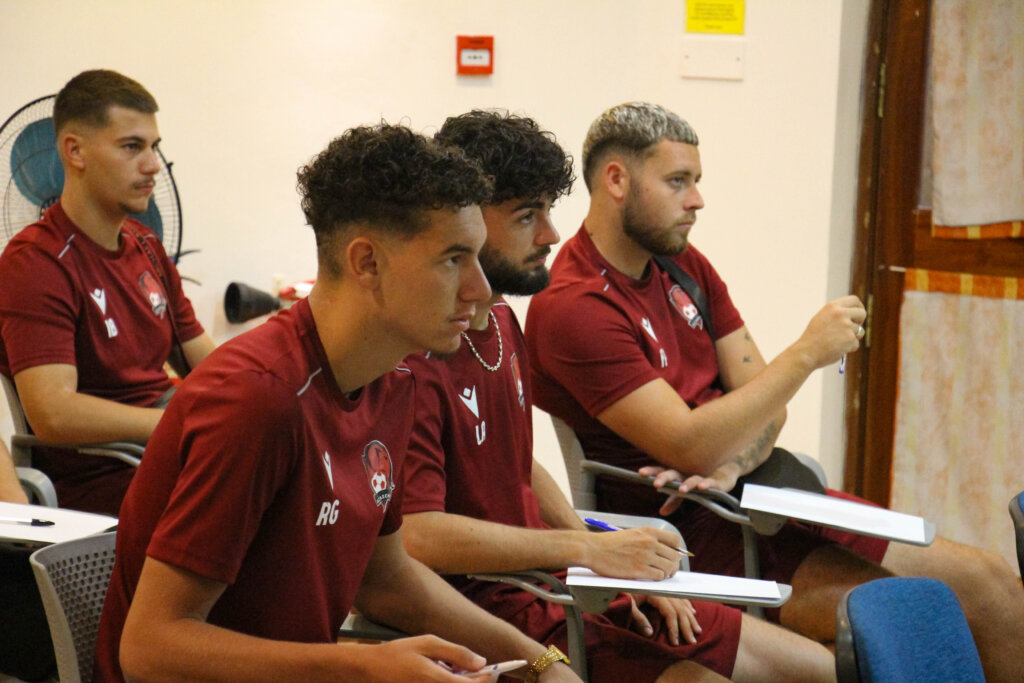Launching a football career while pursuing their studies can seem impossible for many young athletes.
On the one hand, there's the intense passion for football, and on the other, the weight of school books and exams.
So, how can you juggle these two responsibilities without losing balance?
This article is aimed at student-athletes, young footballers and players who want to succeed in these two crucial areas.
We will discuss the challenges and opportunities and provide practical advice on how to excel both on the pitch and at school.
Summary
The importance of balancing studies and a football career
Pursuing a sports career is the dream of many young people, but it is essential to remember that a professional athlete’s career is often short and uncertain.
A solid academic background offers long-term safety.
Studying not only prepares you for a possible career change, but also helps you develop essential skills such as critical thinking, communication and time management.
These skills are invaluable both in everyday life and on the football pitch.
The discipline acquired through a good upbringing can also lead to best sporting performances.
Athletes who commit themselves to their studies often develop a resilience and capacity for hard work that helps them to persevere in the face of sporting challenges.
In addition, education fosters personal development, offering a broader vision of the world, which is essential for operating in diverse environments, both nationally and internationally.

Our tips for effective time management
Time is a limited resource, particularly for student-athletes, and the key to success lies in effective time management.
Start by drawing up a detailed timetable that includes training times, lessons, study periods and, of course, rest. A well-structured schedule not only makes sure you don't forget anything, but also helps you visualise periods of overload.
Prioritise your tasks according to deadlines and their importance. Sometimes this means giving up certain social activities to concentrate on an important exam or a crucial match.
Use digital tools such as time management applications to help you stay organised and meet deadlines.
Don't forget to include time to relax and recharge, as exhaustion can affect both academic and sporting performance.
Navigating between academic and sporting commitments
Student-athletes often have to juggle conflicting commitments. Effective communication with coaches and teachers is therefore crucial.
Let them know about your timetable and any particular constraints you are facing. Open communication can lead to greater flexibility, such as the possibility of handing in an assignment a little later or attending a training session at a different time.
Establish strategies for catching up on missed lessons because of competitions or training sessions.
You might consider forming study groups with other student-athletes or asking your classmates for lecture notes.
Using online platforms to access academic resources can also be very useful.
Taking advantage of support systems
No one succeeds alone. It is important to rely on the support systems available.
Whether it's family, friends, coaches or teachers, everyone plays a crucial role in your success.
Parents can help by providing a study-friendly environment, while coaches can adjust training requirements to suit your academic needs.
Our teachers can help you choose courses that best suit your sporting schedule and career goals.
Don't underestimate the importance of emotional support; having someone to talk to in times of stress can make all the difference.
Thinking about the future
Even if football is your current passion, it is wise to think about the future.
Academies and training centres are an excellent opportunity to continue your studies while playing football.
Look for university programs that support student-athletes and offer scholarship options.
You should also have a plan B.
Injuries or the ups and downs of a sporting career can happen, and getting qualifications gives you an alternative route. Whether it's in sports management, health, marketing or any other career that interests you, being prepared gives you more control over your future.
Conclusion
In short, juggling studies and a football career is a challenge, but with the right approach and support, it's entirely possible.
By cultivating a balance between the two, young athletes are not only preparing themselves for a successful sporting career, but also for a life full of possibilities.
Remember that your education is an integral part of your personal and professional development.
If you would like to find out more about this approach, feel free to explore our additional resources or talk to mentors and professionals who can guide you along this exciting path.

